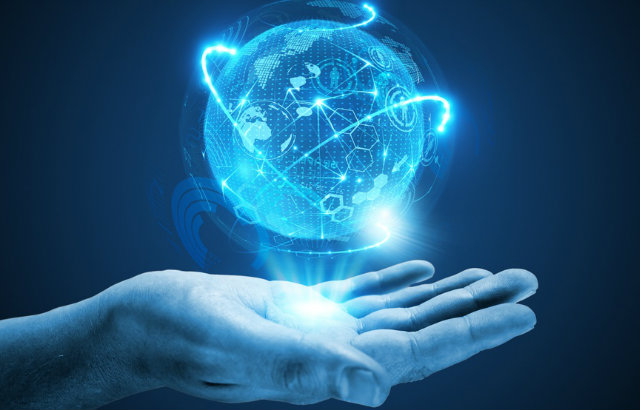
As the year comes to a close, digital leaders are already projected to their next move. In an age of constant changes, in fact, what’s next is always more important - and interesting - than what you have already accomplished.
Do you have a bold goal for 2016? Does your business plan include the terms ‘digital’ and ‘transformation’? If the answer is “Yes”, you are on the right track. You just need one more hint, in other words the top digital transformation predictions for 2016 and the years to come.
In the past months, digital transformation has become a serious business buzz, but what exactly does the term mean? There is no shared opinion, as it is translated into different things by different marketers. The best way is to divide and define the two terms separately:
- Transformation - It is a whole scale change that disrupts the foundational elements of your business (customers, products, organization, markets). The change forces the renovation of the entire value chain model, starting from operating models, business infrastructure, and customer experience management. There is no change in the environment that does not affect the organization, in terms of structure, strategy, and people.
- Digital - Every major shift in human history is strictly connected to technological innovation. Technology is the main driver of transformation, and it creates an inseparable ecosystem with customer behaviors and market competition. When one changes, the others are destined to change consequently. Today, the digital screen and the smartphone are the main catalysts of the disruption of our markets, brands, and identities.
In the last ten years, the Internet has created a layer on our life, melting the physical and digital worlds. With the spread of mobile technology, guided by the smartphone, we are now submerged in a stream of constant connectivity. Anytime we use the smartphone we literally possess the entire world in our hands.
The dematerialization of reality and the fragmentation of life into micro-moments have had two consequences:
- The emergence of the digital customers, empowered and demanding. They have a strong personality; they want to fulfill new needs and desires; they show different purchase decisions and behaviors.
- The evolution of the customer journey, that defies traditional definitions and unravels across different touchpoints, online and offline. To engage and understand the digital customer, marketers need to assume a mobile-first (if not mobile-only) approach.
Given the premise, it is evident that going digital does not mean simply “going paperless” as stated by those who want to reduce the power and range of this radical change. Digital transformation is not limited to a technological improvement or a business model evolution. It implies a shift in your culture, mindset, and perspective.
It surely starts with the revision of the customer experience management and the employee engagement. The first step to improving your business is to put people where they deserve to be, at the very core of your strategy. To quote our favorite guru Brian Solis “the digital innovation is as much about technology as it is about people."
Of course, a transformation with so deep implications cannot happen in one year. In the last ten years, and especially in 2015, we have already seen some important seeds of evolution:
- Customer-centric approach - Wearing their customer’s hat for the first time, most companies are now aware that the customer experience is the main element of differentiation in highly evolved markets.
- Mobile as the first channel - People and brands now live online and offline. Mobile is not just another channel among the others; it is the primary channel to engage with customers.
- Wearables and quantified self - Wearables have soon become part of customer’s life, and the success of activity trackers and smartwatches responds to the need for a connected and quantified self.
- Customer journey rebuilt - While you try to figure out how to include them into your digital marketing strategy, smart phones, watches, glasses and wristbands have already reshaped the customer journey.
- Big data marketing - The key to a successful transformation is the ability to collect meaningful information and translate data into actionable insights to prioritize activities and investments.
These are the foundations to take a further step towards the evolution of your business. Going back to the opening question, what should we expect that will happen in 2016? We see five more seeds which will add their influence to those already listed.
TECHNOLOGY WILL ENHANCE EXPERIENCE
Why are you investing time and money in new technologies? The answer to this question will increasingly focus on the experience. You unlock the power of emerging devices to improve customer experience and win the race to relevance. Digital deletes the limits of physical reality, pushing the experience to a whole new level where virtual and augmented reality become the perfect companion to deliver immersive experiences and engage customers emotionally.
THE INTERNET WILL CONNECT THINGS
We are surrounded by increasingly intelligent devices, objects that do not need human intervention to learn and communicate. We will soon move from the Internet connecting people to the Internet connecting things. The so-called Internet of Things has the potential to redefine competitive advantage and “fundamentally alter how consumers interact with enterprises and how enterprises interact with their supply chain and distribution partners.” (Forbes)
MARKETING WILL BE CONTEXT AWARE
Any marketer knows that content without context is powerless. This is, even more, true in a world where mobile devices redefine the connection between companies and customers. The implementation of technologies such as beacons, geofencing, push notifications and the Internet of Things will spruce marketing up. Location and context will rule your strategy, ultimately allowing you to engage digital customers where and when it matters most, on every device.
MACHINE LEARNING WILL MAKE YOU SMART
The information technology has made possible for objects to handle complex operations at a speed not suitable for human beings. We could not consider these computers really smart, however, because they did not learn from the environment. Machine learning is a huge bet many big companies are doing: the future of business lies in the adoption of smart connected tools, able to autonomously learn and predict customer behaviors. This will ease the retail revolution we are all waiting for.
DATA WILL FOCUS ON CUSTOMER EMOTIONS
It is recent news that Google has created a tool that solves for computers the problem of seeing. It will soon recognize our emotions, identifying faces and learning from the what we do and how. If embedded in mobile apps and combined with machine learning, this technology will allow companies to gather real-time data about any single customer. Information that could be used to deliver (finally) personalized content and experiences, based on their behavior and emotions.
Now it is your turn. Which do you think will be the technologies that will drive digital transformation in the next years?
YOU MIGHT ALSO LIKE: 5 Digital Best Practices For a Brilliant Engagement Strategy
To help you provide a strategic advantage to your organization, Neosperience has crafted the first DCX 7-Steps Checklist, with requirements and insights for a successful digital transformation. Download the free guide here:



 Your magnifing glass to deeply understand your users and increase the value of each relatonship.
Your magnifing glass to deeply understand your users and increase the value of each relatonship. Listen to the voice of your customers deeply to understand what they truly want.
Listen to the voice of your customers deeply to understand what they truly want. The Lead Generation Platform to get leads from anonymous traffic on your website.
The Lead Generation Platform to get leads from anonymous traffic on your website.  Understand the behavior of people in physical spaces and monitor safety requirements.
Understand the behavior of people in physical spaces and monitor safety requirements. The Digital Commerce Platform designed to follow the most modern technological standards..
The Digital Commerce Platform designed to follow the most modern technological standards.. The XReality platform to tell brand and product stories by connecting physical and digital worlds.
The XReality platform to tell brand and product stories by connecting physical and digital worlds. Points, rewards, levels, badges, missions: a world of nudges to nurture your customer community.
Points, rewards, levels, badges, missions: a world of nudges to nurture your customer community. Discover all the other solutions!
Discover all the other solutions!









